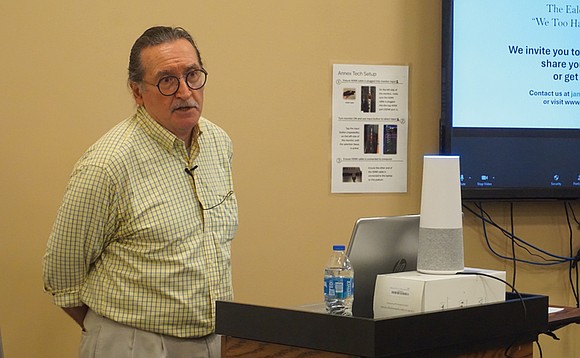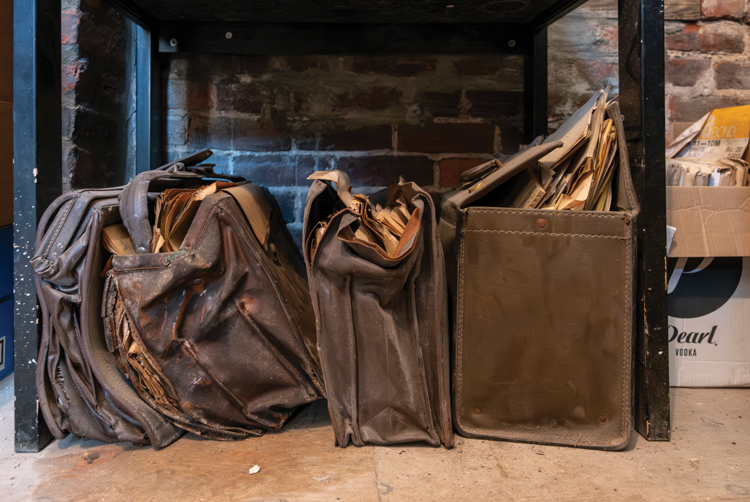Ealey Project seeks public help to preserve civil rights leader’s legacy
George Copeland Jr. | 4/3/2025, 6 p.m.

A stash of moldy boxes uncovered during a home renovation in Jackson Ward sparked a years-long effort to preserve the legacy of Roland J. “Duke” Ealey, a civil rights attorney and former Virginia state delegate whose work spanned pivotal moments in school desegregation, voting rights and criminal justice.
Now, The Ealey Project — founded after the discovery of hundreds of thousands of his legal files in those boxes — is turning to the public for help. The group is gathering oral histories, seeking partnerships and raising funds to ensure Ealey’s contributions, and those of everyday Virginians, are fully documented.
“You’re going to find an overwhelming amount of information that we can use to enhance our American historical narrative,” James Vigeant, the project’s president, told members of the Afro-American Historical Genealogical Society’s Greater Richmond Virginia Chapter during a Saturday meeting at the Richmond Public Library.
Vigeant, alongside wife and Ealey Project member Sasha Finch stumbled on the files from Ealey’s law office in 2018 during the renovation of an over 100-year-old house on East Clay Street.
 Legal files from civil rights attorney Roland J. ‘Duke’ Ealey, discovered during a 2018 home renovation in Richmond’s Jackson Ward neighborhood. The Ealey Project is working to preserve and digitize the documents, which span 1940 to 1992, to highlight his role in civil rights.
Legal files from civil rights attorney Roland J. ‘Duke’ Ealey, discovered during a 2018 home renovation in Richmond’s Jackson Ward neighborhood. The Ealey Project is working to preserve and digitize the documents, which span 1940 to 1992, to highlight his role in civil rights.Photo by Sandra Sellars/Richmond Free Press
As they investigated the material spanning from 1940 to 1992, they connected with groups and people interested in safe-guarding their findings, including former Gov. L. Douglas Wilder.
The files are currently archived at the Library of Virginia, and The Ealey Project is partnering with local institutions, universities and community groups to amplify Ealey’s story and fill gaps in the historical record.
Among other plans, video oral histories will be recorded with individuals who had experiences or connections to Ealey, covering topics such as school desegregation, the court system and voting rights. The goal: to deepen public understanding of his life and legacy, as well as the broader histories of the country and community.
“We all know who the leaders in the African American community are and what their stories are,” Vigeant said. “But you have a story. Your neighbor has a story. People in your family have a story.”
Vigeant spoke highly of AAHGS as a collaborator due to their focus on historical accuracy and ensuring the contributions of all Americans are known and accounted for.
AAHGS members — both in-person and online — engaged deeply with the presentation, including offering questions for Vigeant during an enthusiastic Q&A session.
“Some of you may be familiar with (Ealey), some of you may not, but I think it’s something that we need to bring to fruition,” AAHGS Corresponding Secretary Marilyn Campbell said as she introduced Vigeant. “Our youths need to be aware of the local icons.”
For more information or to participate in the oral history, visit ealeyproject.org






